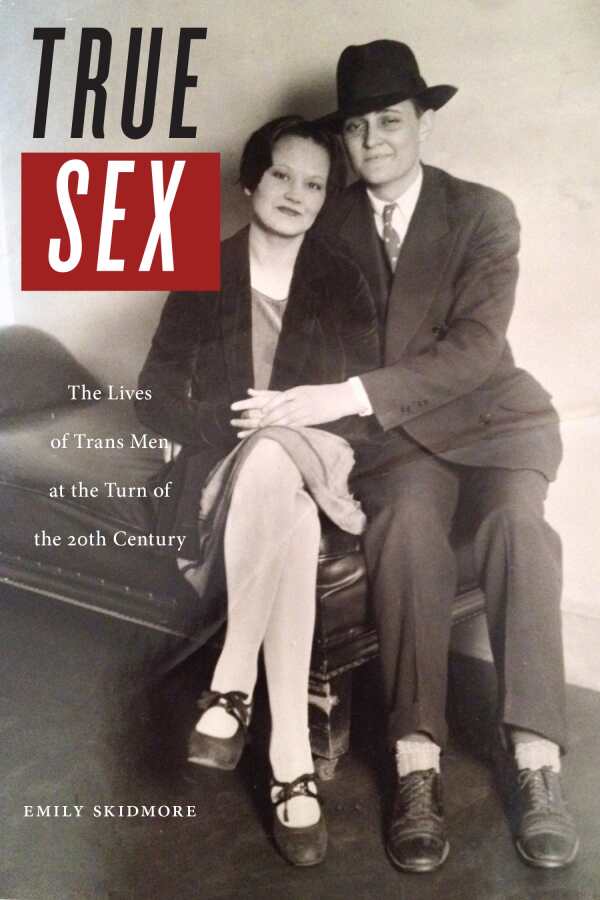True Sex
The Lives of Trans Men at the Turn of the Twentieth Century
Dynamic, compelling, and wholly original, True Sex is an invaluable addition to LGBTQ studies.
Emily Skidmore’s True Sex: The Lives of Trans Men at the Turn of the Twentieth Century is a fascinating addition to LGBTQ historical discourse.
Refreshing in its exploration of the rural trans experience, True Sex delves into the lives of eighteen trans men who lived in the United States in the late 1800s and early 1900s. Negating the common misconception that LGBTQ individuals always sought the sanctuary of large urban hubs, Skidmore’s research focuses on the appeal of small, rural communities to trans men who wanted to pass completely as male.
Surprisingly, in many cases, when the individuals’ “true sex” was discovered by or presented to their chosen community, they were still accepted, both socially and professionally. Interesting historical, sexual, and racial parallels are drawn to show how rural Americans responded to the Other, making for a well-rounded exploration.
Meticulously researched, True Sex highlights a woefully understudied portion of American history. Language is clear, concise, and accessible. Skidmore’s research takes a holistic approach, examining the eighteen cases both independently and within the confines of their contemporary societal and cultural trappings. Within this framework, great meaning is imparted.
By humanizing the narratives of trans men during this time, True Sex manages to make a case for the seemingly implausible. Despite countless historical instances of institutional homophobia and the denial of human rights to the LGBTQ community, the text also chronicles the outright acceptance of trans men, both during their lifetimes and through their legacies. The exploration of this anomaly is where Skidmore’s research really shines.
The second chapter, “Beyond Community: Rural Lives of Trans Men,” is an exceptional example. It shares George Green’s spellbinding story, including his marriage to Mary Biddle. The pair sought out rural communities, finally settling in Ettrick, Virginia, where George was never seen as anything other than a hardworking husband. The discovery of his “true sex” was met not with denunciation, but rather with approval because he had lived such a conscientious life. That sentiment was echoed by national publications, shedding new light on the conceptualization of queer history.
Dynamic, compelling, and wholly original, True Sex is an invaluable addition to LGBTQ studies.
Reviewed by
Amanda Adams
Disclosure: This article is not an endorsement, but a review. The publisher of this book provided free copies of the book to have their book reviewed by a professional reviewer. No fee was paid by the publisher for this review. Foreword Reviews only recommends books that we love. Foreword Magazine, Inc. is disclosing this in accordance with the Federal Trade Commission’s 16 CFR, Part 255.

